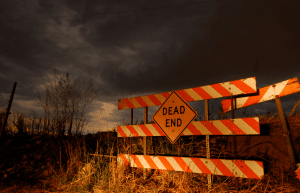California prides itself on being the land of opportunity. It is a place that welcomes all and inspires with its unique diversity of life, nature, and cultures. Yet over the past seventy years, our state has spent billions of funding on highway expansion projects that increase poverty, reduce the quality of life, separate communities, destroy nature, and make Californians sicker.
Highway expansion projects are advertised as necessary for our economy, as a way to reduce congestion and create good-paying jobs. Yet, research shows this is not the case. Highway expansions do not reduce congestion, in fact, they worsen it through a process known as induced demand, which states that the number of cars on the road will increase as more space becomes available. In particular, increasing road capacity by one percent leads to a one percent increase in the number of cars on the road. Highway expansions are also poor job creators. Instead, investments in public transportation produce 70% more job hours and even road repair produces 16% more jobs per dollar than new road construction.
Highway expansions don’t just hurt our economy, they hurt our most vulnerable communities. More traffic on our roads generates more air pollution which leads to health effects such as lung cancer, asthma, heart attacks, and even premature death. This pollution tends to concentrate in near-roadway communities, which about 45 million Americans call home. These communities not only bear the burden of air pollution but are often displaced to make room for additional highway lanes. Since the development of the Interstate Highway System, more than 1 million people in the United States have been forced to leave their homes, many of which have been Black neighborhoods.
I-15 Expansion[divider width=”medium”]
In January, the California Transportation Commission (CTC) approved the widening of Interstate 15 by three additional lanes between the cities of Eastvale and Fontana in Riverside and San Bernardino counties. While the environmental documents for this project claimed it would have no impact on the nearby environment, they also admitted that the project would actually increase traffic by 12 to 28 percent. Additionally, some commissioners were concerned about inconsistencies within the project application. In particular, project proponents denied that they would exacerbate air pollution, claiming in their application to the Environmental Protection Agency that there would be no additional truck traffic, yet they boasted in their application to the CTC that the project would increase the number of trucks traveling along the highway. But the Commission limited the time allowed to dissenting members and rammed the approval through.
Yolo-80 Managed Lanes Project[divider width=”medium”]
And now, California is preparing to make the same mistake again. On May 16, the California Transportation Commission will vote on whether to award $100M to a project to build 17 lane miles of tolled lanes on the I-80 freeway between Davis and Sacramento. Like the I-15 project, this proposal would result in worse air quality, increased traffic, and accidents, all in the name of “congestion reduction.”
For one, despite claiming that the project will improve travel times and reduce emissions, the project’s environmental documents admit that the project would increase vehicle miles traveled (VMT). Increasing VMT will increase the number of cars on the road, which means that the claims that it would reduce traffic and emissions are false (click here to view a video developed by CCA that helps explain how this works). There is also very little commitment to mitigate the negative impacts the project will cause. While typically projects are encouraged to mitigate their full environmental impact by investing some of their funding into providing more public transportation, bike lanes, and sidewalks, the Yolo-80 project only proposes to mitigate less than half of its impacts due to “budget constraints.” It is unacceptable for a project of this size, which is set to receive a significant amount of state and federal funding, to fail to slightly increase its budget to undo the harm to air quality and climate it will cause to local communities and the state.
Despite the strong pushback on this project from residents, advocates, and even other state agencies (read CARB’s critical letters here), the state is still proceeding with this project in an effort to bring in matching federal funding. That funding should be spent on projects that promote sustainability and accessibility instead of projects that create plumes of toxic smog and bumper-to-bumper traffic.
We welcome your support in calling the California Transportation Commission on May 16th and speaking against the Yolo-80 project to let them know you do not support highway capacity projects that increase air pollution, GHG emissions, traffic, noise, and car accidents while displacing vulnerable communities. Together, we can stop our state from investing in solutions that do not work! See step by step instructions and talking points for participation in the meeting.








